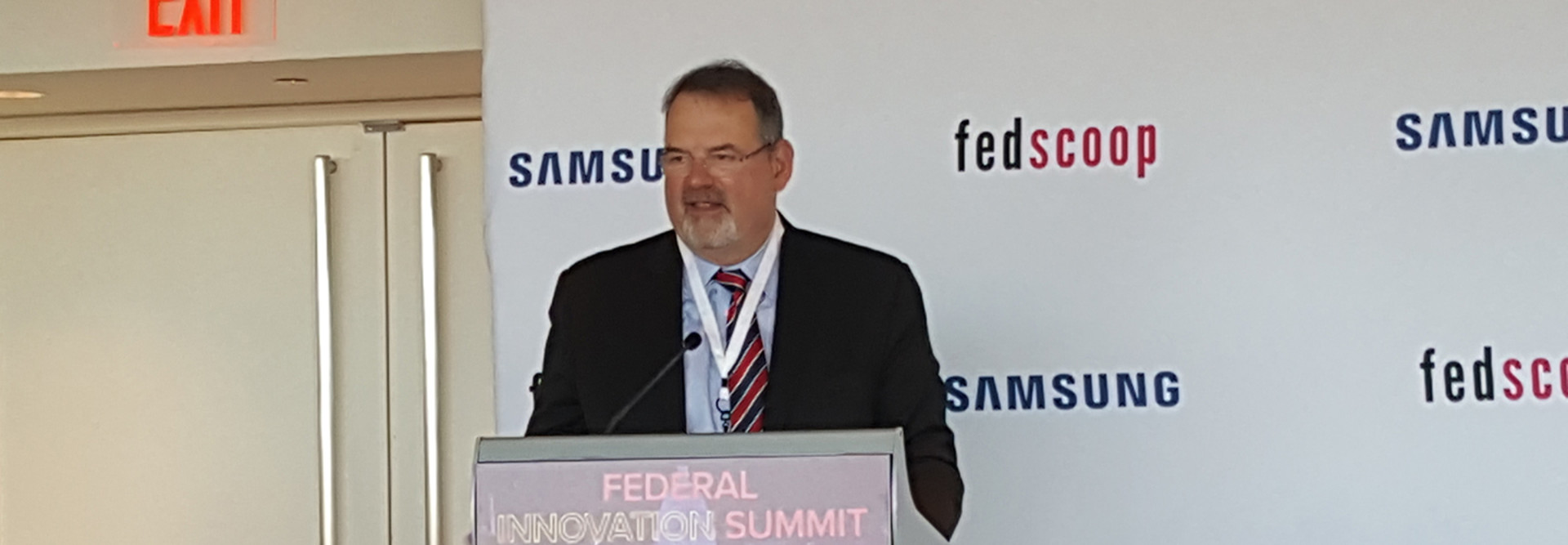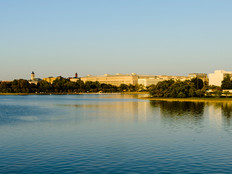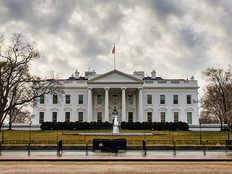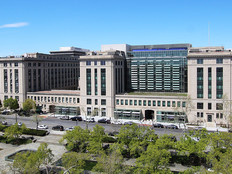Tony Scott: Agency CIOs Need to Get Away from 1970s Tech
When the subject is federal IT innovation, you want to listen to Tony Scott.
The former Federal CIO, who left the government in January 2017, thinks agency CIOs need to think strategically about their technology and surround themselves with others who do the same.
However, he said during a March 14 speech at FedScoop’s Federal Innovation Summit, IT leaders must make sure to distinguish between innovations that matter and those that do not.
Part of that decision making involves focusing on IT enhancements that can benefit numerous agencies through shared services, Scott noted.
SIGN UP: Get more news from the FedTech newsletter in your inbox every two weeks!
Agency CIOs Must Constantly Modernize Technology
Scott agreed with Mat Lira, special assistant to the president for innovation policy and initiatives, who spoke before him at the summit, that the government needs strong, empowered CIOs. However, he said, their focus should be on continuous modernization.
Scott, who is now senior data privacy and cybersecurity adviser at law firm Squire Patton Boggs, noted that recently a friend of his let him ride in a 1970s-era Cadillac convertible, which he described as a beautiful car with bright red paint, white leather interiors and as big as a house. However, it had none of the modern conveniences that even a cheap, compact car made in the past few years would have, including an engine with fuel injection and anti-lock brakes.
“We still have a lot of 1970s-era technology running the federal government,” Scott said. “Those things have the same deficiencies as this. They’re just not suitable for today’s modern environment. That takes a lot to run. They’re costly. And quite frankly, just like the 1970s Cadillac, by today’s standards, they’re not safe.”
While the government has made progress on moving to modernize its technology, IT leaders need to take a new approach, Scott suggested. Scott, who served at one time as CTO of information systems and services at General Motors, noted that at GM he was responsible for injecting innovation into the carmaker.
Scott learned that it’s important to distinguish between innovations that matter and those that don’t. IT leaders will be faced with numerous ideas and options, and while they should encourage creative thinking, their role is to separate out those ideas that can’t scale or bring about change. Those that can’t need to be sent back and refined, he said.
Agencies also need to focus on digital architecture, Scott said, and CIOs need to work with CFOs, human resource leaders, procurement officials and others to change their culture and business processes. That partnership will enable CIOs to think about their architecture in new ways.
Scott said he hopes the Modernizing Government Technology Act’s centralized Technology Modernization Fund will become a vehicle allowing agencies to work together and deliver solutions that many of them can use.
A good example, Scott said, are case management systems, which can be found in almost every agency. Some agencies have dozens of them, and each system uses custom code even though they all do essentially the same thing: serving as core information systems. Scott said 80 percent of all government case management systems are the same and 20 percent have unique agency-specific capabilities.
A common, cloud-based cross-agency platform could cover the 80 percent that is common across agencies and allow each agency to build its unique capabilities on top of it. “That’s just one example,” Scott said, noting that there are dozens more across the government.
Agencies need strong CIOs and IT architects who can look at information flows and find the things that agencies have in common, so that they can increasingly use shared services. “Let’s create that conversation,” he said. “Let’s go figure out where we can be really efficient, really fast.”
IT modernization is a long-term project for the government, Lira concluded, one that the Trump administration is unlikely to complete in its entirety. “We anticipate this is going to be a challenge that outlasts us,” he said.









